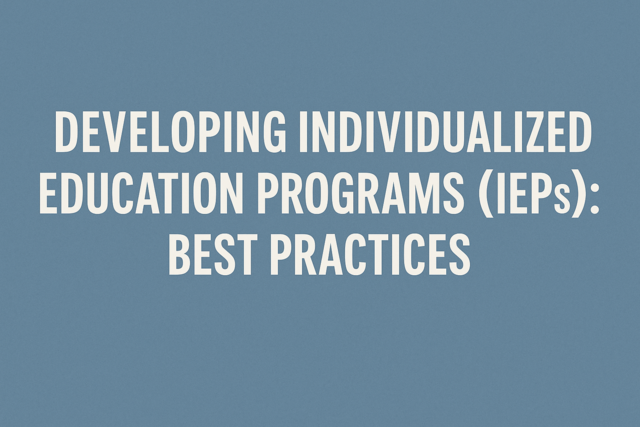Online Class: Emotional and Behavioral Disorders — Identification and Support

-
15Lessons
-
22Exams &
Assignments -
7Hours
average time -
0.7CEUs
Course Description
Imagine stepping into a world where you possess the tools to transform lives—not just by offering conventional support but by truly understanding the intricate and often misunderstood realm of emotional and behavioral disorders (EBD). Welcome to "Emotional and Behavioral Disorders: Identification and Support," an extraordinary course designed to elevate your ability to connect with and uplift those navigating these challenging waters. This isn't just another course; it is your gateway to becoming a compassionate beacon of hope and progress for countless individuals.
Imagine a classroom that isn't bound by traditional walls but is defined by the meaningful connections you will forge. You will immerse yourself into the depths of social interaction where EBD plays a silent yet profound role, breaking barriers and building bridges for individuals often on the brink of isolation. This learning journey will unlock your ability to cultivate empathy, ensuring that every child, teen, or adult you meet is met with understanding and genuine care.
Picture yourself gaining a sixth sense—the ability to detect the subtleties of emotional and behavioral signals often overlooked or misunderstood. Through this course, you will learn to identify early warning signs of EBD, not just for intervention but for cultivating resilience and offering a guiding light in uncertain times. You will become adept at navigating the biological and socioeconomic intricacies that shape these disorders, preparing yourself to effectively influence positive outcomes.
Our program champion's diversity, offering insights into the vast spectrum of behavior that varies not just across individuals, but cultures. Your journey will be enriched with the knowledge of using comprehensive assessments that are culturally sensitive, giving you a nuanced perspective vital for creating tailored, effective interventions that resonate deeply with each person's unique experiences.
Have you ever yearned to unravel the depths of a child's emotional world? To understand the profound influences of anxiety and mood disturbances? By embracing modern research, this course equips you with the knowledge required to foster resilience in young minds. Your understanding will transcend typical support, evolving into a life-long mantra of empowerment and progress for those under your guidance.
But the journey doesn't stop there. ADHD, ODD, and Conduct Disorder—three distinctive challenges that you will learn to confront head-on with strategies that prioritize collaboration among educators and caregivers. You'll explore the delicate balance of structured environments, personalized approaches, and open channels of communication that encourage growth and understanding.
Autism Spectrum Disorder is tackled with a fresh perspective, embracing the uniqueness of individuals through tailored education plans that highlight their extraordinary talents. Within this supportive framework, you'll learn to maximize learning opportunities, ensuring comfort and trust no matter how diverse the needs.
In the ever-complex world of family dynamics and cultural influences on mental health, this course places you at the forefront of change. You'll be introduced to the ethical and legal responsibilities necessary to advocate effectively for individuals with EBD, prompting a more inclusive and understanding world. This is more than learning about IDEA and ADA—it's about championing rights and instigating meaningful change.
This course brings warmth to the term "support," bridging the gap between theory and practice, with a unique blend of compassion, legality, and practical application. You'll become a maestro of behavioral therapies like CBT, ABA, and DBT, using technology and family involvement to ensure lifelong progress and accessibility.
Every lesson you engage with contributes to a story—a story where trauma's profound impact is not a roadblock but a stepping stone towards resilience and emotional regulation. You, the learner, will gain the insights necessary to create stable, nurturing environments and be the anchor that at-risk youth so desperately need.
Join us in this unforgettable, life-altering journey to mastery, where your skills and empathy will flourish, paving the way for profound transformations in the lives of countless individuals. This isn't just education; it's empowerment. Enroll today, and redefine what it means to support, engage, and uplift those with emotional and behavioral disorders. Let's create a brighter, more compassionate future together.
- Business
- Business Ethics Courses
- Harassment Prevention Courses
- Human Resources Certifications
- Management
- Aromatherapy Courses
- Caregiver Courses
- Career Development Courses
- Communications Courses
- Confidence and Self Esteem Courses
- Healing
- Human Anatomy Courses
- Medical Skills
- Health & Medicine
- Nutrition
- Marketing
- Microsoft Office Certification Courses
- Life Coaching Courses
- Self-Improvement
- Small Business Certifications
- Safety
- Writing Improvement
- Business Writing Courses
Course Lessons
Lesson 1. Beyond the Classroom: EBD and Social Interaction
 Lesson discussions: Reasons for Taking this Course
Lesson discussions: Reasons for Taking this Course Complete: Lesson 1 Activity
Complete: Lesson 1 Activity Assessment: Lesson 1 Review Exam
Assessment: Lesson 1 Review Exam
Lesson 2. Early Warning Signs and Symptoms of Emotional and Behavioral Disorders
 Complete: Lesson 2 Activity
Complete: Lesson 2 Activity Assessment: Lesson 2 Review Exam
Assessment: Lesson 2 Review Exam
Lesson 3. Tailored Support Strategies for Managing EBD in the Classroom
 Assessment: Lesson 3 Review Exam
Assessment: Lesson 3 Review Exam
Lesson 4. Unraveling Complex Childhood Emotions
 Complete: Lesson 4 Activity
Complete: Lesson 4 Activity Assessment: Lesson 4 Review Exam
Assessment: Lesson 4 Review Exam
Lesson 5. Understanding ADHD in School and Life
 Complete: Lesson 5 Activity
Complete: Lesson 5 Activity Assessment: Lesson 5 Review Exam
Assessment: Lesson 5 Review Exam
Lesson 6. Navigating the Challenges of ODD in Children
 Assessment: Lesson 6 Review Exam
Assessment: Lesson 6 Review Exam
Lesson 7. 'Breaking Norms': Understanding Conduct Disorder's Roots
 Complete: Lesson 7 Activity
Complete: Lesson 7 Activity Assessment: Lesson 7 Review Exam
Assessment: Lesson 7 Review Exam
Lesson 8. The Complexity of Autism Spectrum Disorder: Establishing Supportive Environments
 Complete: Lesson 8 Activity
Complete: Lesson 8 Activity Assessment: Lesson 8 Review Exam
Assessment: Lesson 8 Review Exam
Lesson 9. Collaborative Approaches to Childhood Behavior Support
 Assessment: Lesson 9 Review Exam
Assessment: Lesson 9 Review Exam
Lesson 10. Understanding Emotional and Behavioral Disorders: Importance of Family Dynamics and Culture
 Assessment: Lesson 10 Review Exam
Assessment: Lesson 10 Review Exam
Lesson 11. Mastering Social Skills: Strategies for Overcoming Emotional and Behavioral Challenges
 Complete: Lesson 11 Activity
Complete: Lesson 11 Activity Assessment: Lesson 11 Review Exam
Assessment: Lesson 11 Review Exam
Lesson 12. Empowering Educators to Support Students with EBD
 Assessment: Lesson 12 Review Exam
Assessment: Lesson 12 Review Exam
Lesson 13. Ethical and Legal Responsibilities in Supporting Emotional Disorders
 Assessment: Lesson 13 Review Exam
Assessment: Lesson 13 Review Exam
Lesson 14. Harnessing Behavioral Therapies To Foster Lifelong Growth
 Assessment: Lesson 14 Review Exam
Assessment: Lesson 14 Review Exam
Lesson 15. The Profound Influence of Trauma on At-Risk Youth: Addressing Emotional and Behavioral Disorders
 Lesson discussions: End of Course Poll; Course Comments
Lesson discussions: End of Course Poll; Course Comments Assessment: Lesson 15 Review Exam
Assessment: Lesson 15 Review Exam
Learning Outcomes
- Identify and demonstrate effective intervention strategies for supporting students with Emotional and Behavioral Disorders in educational settings.
- Recognize and describe the impact of Emotional and Behavioral Disorders (EBD) on academic performance and social interactions.
- Identify and differentiate between typical developmental behaviors and those indicative of emotional and behavioral disorders, incorporating cultural and socio-economic context.
- Recognize and describe common symptoms and early warning signs of emotional and behavioral disorders in children and adolescents.
- Analyze the impact of cultural norms on the identification and understanding of behaviors associated with Emotional and Behavioral Disorders (EBD).
- Identify and describe the five central characteristics of Emotional and Behavioral Disorders (EBD) as outlined by the Individuals with Disabilities Education Act (IDEA).
- Define the symptoms of anxiety disorders in children, such as generalized, separation, and social anxiety, using specific behavioral and physical manifestations.
- Identify and describe the differences in symptom presentation between mood disorders in children and adults, focusing on irritability and social withdrawal.
- Define the symptoms of ADHD using the DSM-5 criteria, identifying specific behavioral indicators in educational settings.
- Demonstrate effective strategies to manage ADHD symptoms within classroom environments, utilizing behavioral interventions and instructional modifications.
- Define the diagnostic criteria for Oppositional Defiant Disorder (ODD) using the DSM-5 guidelines.
- Recognize the difference between ODD and similar disorders like ADHD and Conduct Disorder through symptom comparison.
- Recognize the multifaceted etiology of Conduct Disorder, including genetic, environmental, and neurobiological factors, and describe their interactions.
- Demonstrate mastery of lesson content at levels of 70% or higher.
Additional Course Information

- Document Your Lifelong Learning Achievements
- Earn an Official Certificate Documenting Course Hours and CEUs
- Verify Your Certificate with a Unique Serial Number Online
- View and Share Your Certificate Online or Download/Print as PDF
- Display Your Certificate on Your Resume and Promote Your Achievements Using Social Media

Related Courses
-
 4 hours
0.4 CEUs
Mysteries of the Quantum Realm
+ More Info
4 hours
0.4 CEUs
Mysteries of the Quantum Realm
+ More Info
-
 7 hours
0.7 CEUs
Enhancing Empathy and Compassion
+ More Info
7 hours
0.7 CEUs
Enhancing Empathy and Compassion
+ More Info
-
 7 hours
0.7 CEUs
Mindful Living in the Modern World
+ More Info
7 hours
0.7 CEUs
Mindful Living in the Modern World
+ More Info
-
 3 hours
0.3 CEUs
Dapper & Distinguished: Men's Fashion Essentials
+ More Info
3 hours
0.3 CEUs
Dapper & Distinguished: Men's Fashion Essentials
+ More Info
-
 3 hours
0.3 CEUs
Unpacking Attachment Styles: Keys to Healthier Relationships
+ More Info
3 hours
0.3 CEUs
Unpacking Attachment Styles: Keys to Healthier Relationships
+ More Info
-
 5 hours
0.5 CEUs
Creating Engaging Online Content
+ More Info
5 hours
0.5 CEUs
Creating Engaging Online Content
+ More Info
-
 4 hours
0.4 CEUs
Implementing Universal Design for Learning (UDL)
+ More Info
4 hours
0.4 CEUs
Implementing Universal Design for Learning (UDL)
+ More Info
-
 5 hours
0.5 CEUs
Self-Discipline and Motivation Strategies
+ More Info
5 hours
0.5 CEUs
Self-Discipline and Motivation Strategies
+ More Info
-
 5 hours
0.5 CEUs
Generational Patterns: How Narcissism Perpetuates Dysfunction
+ More Info
5 hours
0.5 CEUs
Generational Patterns: How Narcissism Perpetuates Dysfunction
+ More Info
-
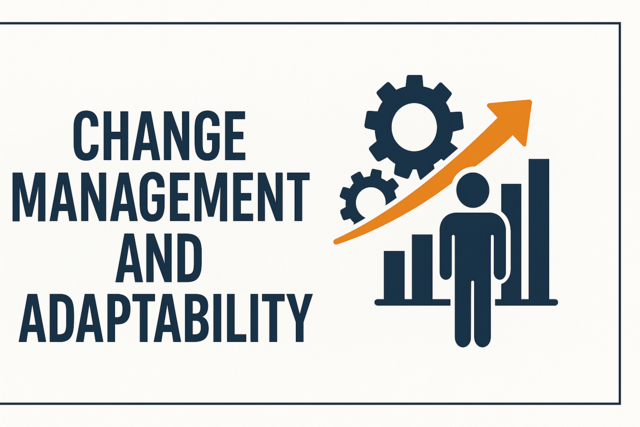 3 hours
0.3 CEUs
Change Management and Adaptability
+ More Info
3 hours
0.3 CEUs
Change Management and Adaptability
+ More Info
-
 6 hours
0.6 CEUs
Digital Literacy and Security
+ More Info
6 hours
0.6 CEUs
Digital Literacy and Security
+ More Info
-
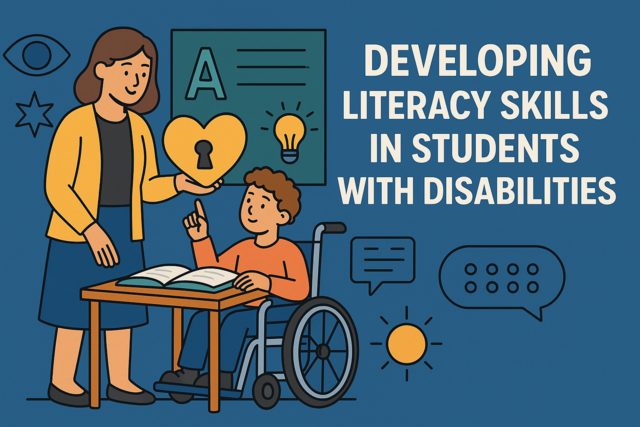 5 hours
0.5 CEUs
Developing Literacy Skills in Students with Disabilities
+ More Info
5 hours
0.5 CEUs
Developing Literacy Skills in Students with Disabilities
+ More Info
-
 6 hours
0.6 CEUs
Iconic Influence: Women's Wear in the Age of Luxury
+ More Info
6 hours
0.6 CEUs
Iconic Influence: Women's Wear in the Age of Luxury
+ More Info
-
 3 hours
0.3 CEUs
Office Staff Productivity Boosters
+ More Info
3 hours
0.3 CEUs
Office Staff Productivity Boosters
+ More Info
-
 4 hours
0.4 CEUs
Collaboration Skills for Special Education Teams
+ More Info
4 hours
0.4 CEUs
Collaboration Skills for Special Education Teams
+ More Info
-
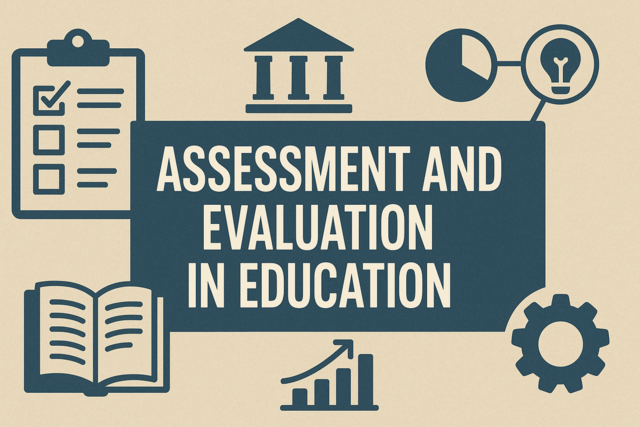 6 hours
0.6 CEUs
Assessment and Evaluation in Education
+ More Info
6 hours
0.6 CEUs
Assessment and Evaluation in Education
+ More Info
-
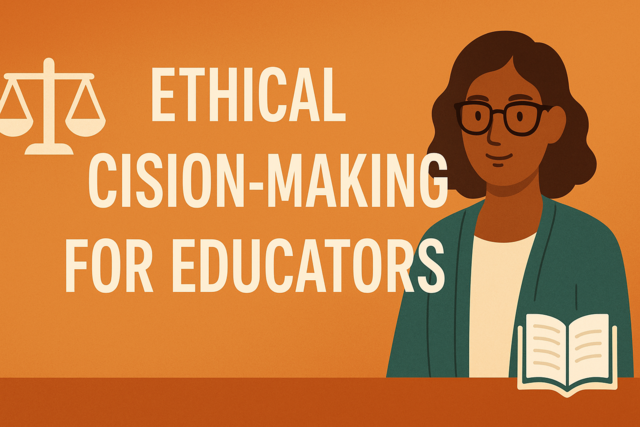 7 hours
0.7 CEUs
Ethical Decision-Making for Educators
+ More Info
7 hours
0.7 CEUs
Ethical Decision-Making for Educators
+ More Info
-
 5 hours
0.5 CEUs
Building Inclusive Classrooms
+ More Info
5 hours
0.5 CEUs
Building Inclusive Classrooms
+ More Info
-
 7 hours
0.7 CEUs
Research Frontiers: Contemporary Studies in Trauma and Recovery
+ More Info
7 hours
0.7 CEUs
Research Frontiers: Contemporary Studies in Trauma and Recovery
+ More Info
-
 6 hours
0.6 CEUs
Beyond the Runway: Influencing Trends in Modern Luxury
+ More Info
6 hours
0.6 CEUs
Beyond the Runway: Influencing Trends in Modern Luxury
+ More Info
-
 4 hours
0.4 CEUs
Understanding Auras and Energy Fields
+ More Info
4 hours
0.4 CEUs
Understanding Auras and Energy Fields
+ More Info
-
 3 hours
0.3 CEUs
Sound Therapy and Vibrational Healing
+ More Info
3 hours
0.3 CEUs
Sound Therapy and Vibrational Healing
+ More Info
-
 7 hours
0.7 CEUs
The Dynamics of Desire: Understanding Intimacy and Attraction
+ More Info
7 hours
0.7 CEUs
The Dynamics of Desire: Understanding Intimacy and Attraction
+ More Info
-
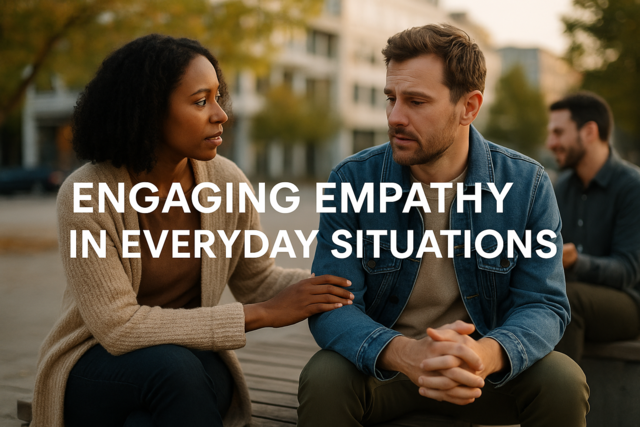 7 hours
0.7 CEUs
Engaging Empathy in Everyday Situations
+ More Info
7 hours
0.7 CEUs
Engaging Empathy in Everyday Situations
+ More Info
-
 3 hours
0.3 CEUs
Writing Across the Curriculum: Best Practices
+ More Info
3 hours
0.3 CEUs
Writing Across the Curriculum: Best Practices
+ More Info
-
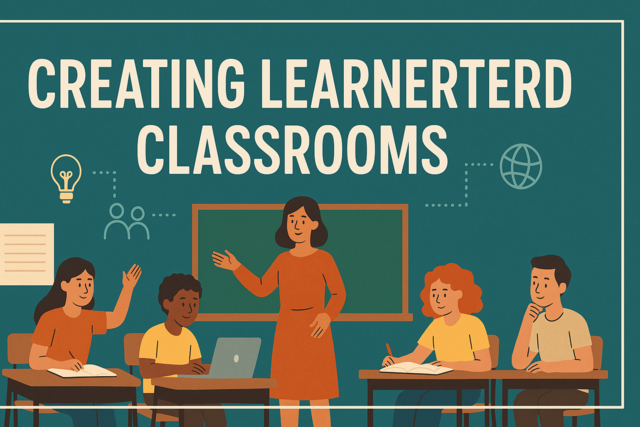 6 hours
0.6 CEUs
Creating Learner-Centered Classrooms
+ More Info
6 hours
0.6 CEUs
Creating Learner-Centered Classrooms
+ More Info
-
 6 hours
0.6 CEUs
Modern Tribes: Building Supportive Friend Circles
+ More Info
6 hours
0.6 CEUs
Modern Tribes: Building Supportive Friend Circles
+ More Info
-
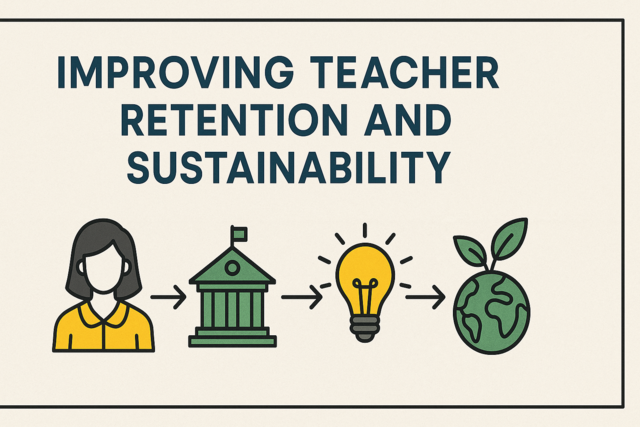 3 hours
0.3 CEUs
Improving Teacher Retention and Sustainability
+ More Info
3 hours
0.3 CEUs
Improving Teacher Retention and Sustainability
+ More Info
-
 3 hours
0.3 CEUs
Designing STEM Curriculum
+ More Info
3 hours
0.3 CEUs
Designing STEM Curriculum
+ More Info
-
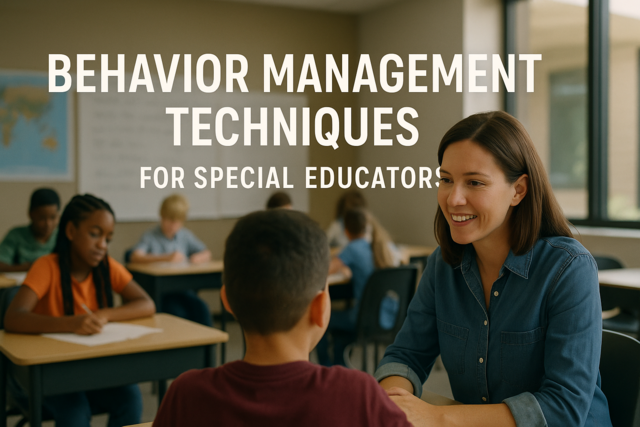 7 hours
0.7 CEUs
Behavior Management Techniques for Special Educators
+ More Info
7 hours
0.7 CEUs
Behavior Management Techniques for Special Educators
+ More Info
-
 5 hours
0.5 CEUs
The Enigmatic Dimensions of Time
+ More Info
5 hours
0.5 CEUs
The Enigmatic Dimensions of Time
+ More Info
-
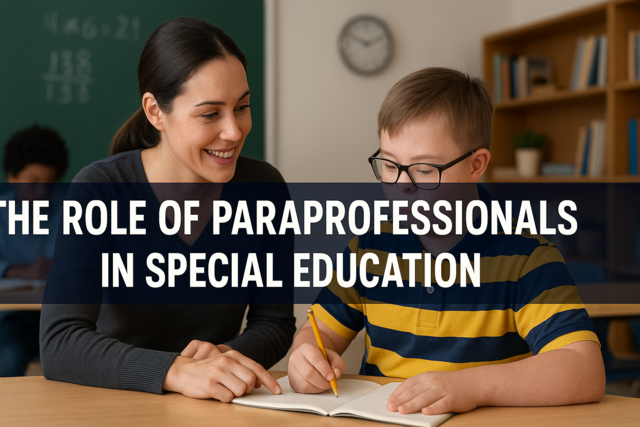 3 hours
0.3 CEUs
The Role of Paraprofessionals in Special Education
+ More Info
3 hours
0.3 CEUs
The Role of Paraprofessionals in Special Education
+ More Info
-
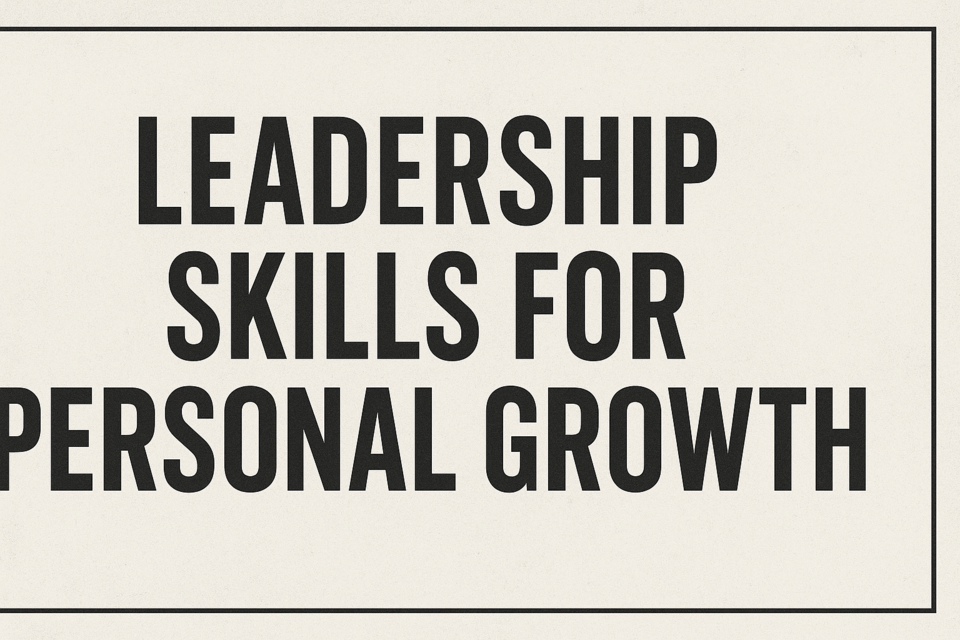 4 hours
0.4 CEUs
Leadership Skills for Personal Growth
+ More Info
4 hours
0.4 CEUs
Leadership Skills for Personal Growth
+ More Info
-
 7 hours
0.7 CEUs
Self-Care and Wellness Practices
+ More Info
7 hours
0.7 CEUs
Self-Care and Wellness Practices
+ More Info
-
 3 hours
0.3 CEUs
Understanding Autism Spectrum Disorders in the Classroom
+ More Info
3 hours
0.3 CEUs
Understanding Autism Spectrum Disorders in the Classroom
+ More Info
-
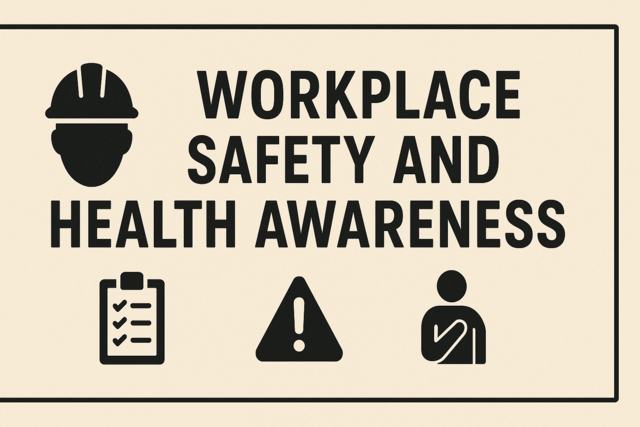 6 hours
0.6 CEUs
Workplace Safety and Health Awareness
+ More Info
6 hours
0.6 CEUs
Workplace Safety and Health Awareness
+ More Info
-
 6 hours
0.6 CEUs
Introduction to Data Analytics
+ More Info
6 hours
0.6 CEUs
Introduction to Data Analytics
+ More Info
-
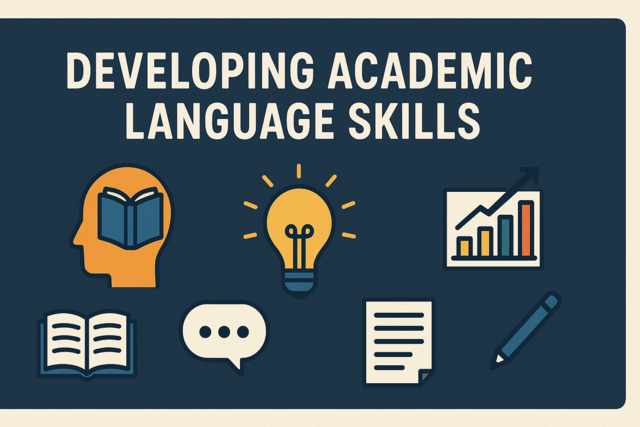 7 hours
0.7 CEUs
Developing Academic Language Skills
+ More Info
7 hours
0.7 CEUs
Developing Academic Language Skills
+ More Info
-
 7 hours
0.7 CEUs
Basics of Entrepreneurship
+ More Info
7 hours
0.7 CEUs
Basics of Entrepreneurship
+ More Info
-
 6 hours
0.6 CEUs
Productivity Tools for Modern Professionals
+ More Info
6 hours
0.6 CEUs
Productivity Tools for Modern Professionals
+ More Info




